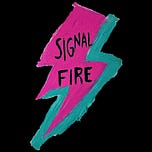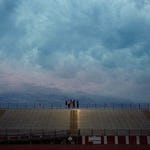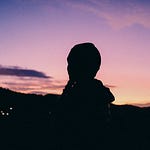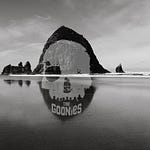If I told you that a 1990s romantic comedy starring Tom Hanks and Meg Ryan (who plays three different characters) saved my life, would you believe me? Would you actually believe me? If I told you that movie, Joe Versus the Volcano was my favorite movie of all time, that it was deeper, more complex, than anyone gives it credit for, that it was a fairy tale at its heart, and that everyone misunderstands it and misses the stunning symbolism and intricacy, would you think me crazyier than before? Probably yes, to all of these, probably very much yes.
Still, I say this proudly and I say it to anyone who will listen, I say it as often as I can because I think there is something magic about this film that get lost, something that got overlooked even when it was released as just another in a long line of Tom Hanks comedic vehicles, or even in the Tom Hanks/Meg Ryan quadruple (ok no one saw Ithaca, so you can call it a trilogy if you want, Joe Vs. The Volcano, Sleepless in Seattle, and You’ve Got Mail, classics the lot). It got overlooked because this film didn’t fit into any specific box — too quirky to be a normal Rom/Com, too fantastical to be mainstream, too silly at times to be actually taken seriously. Tragic, this, as those who bypassed it and shuffled it under the large carpet of forgotten cinema, are missing something filled with more heart, more sorrow, more truth, more inspiration, than they’d ever believe. I’ve long said this to deaf ears, had people laugh when I said that I have multiple tattoos to honor it, and had people think I’m telling a joke with some far-off punchline when I try to explain that it saved my life. Validation finally came, when I found out that Roger Ebert was also a lover of this film. I read his review from 1990 a million times, weirdly getting teary eyed, and even remembering this one quote about the film that resonated:
“at night, in those corners of our minds we deny by day, magical things can happen in the moon shadows. And if they can't, a) they should, and b) we should always in any event act as if they can.” - Roger Ebert -
My goodness gravy yes, they should, and we should always act as if they can. This is where my life got saved, precisely here, and if you’ll afford me a moment, I can explain. I’m going to get a bit personal and tell you all things I’ve not told many people, because as public as my thoughts are, my innards stay pretty private. Here goes.
I was sick for a long, long time. Undiagnosed Autistic. Stomach problems from undiagnosed food allergies and intolerances as well as IBS. If you’ve seen the movie you’ll understand this, if you’ve not yet, please do, but I felt like Joe. Every day I felt sick, unable to do anything I knew I wanted to do, I felt trapped in a life, in a body that didn’t work, I felt like there just wasn’t anything I could fix, anything I could point at and say THIS, RIGHT HERE. There’s a scene where Joe says he doesn’t feel good and is asked what’s wrong, and the desperation in which he says “I don’t know…I don’t Knowwwww” hits me so hard because I’ve been him, I’ve been there, out of words and out of explanations and unable to articulate it. To be completely honest, to be transparent as fresh cleaned glass, I didn’t get the point of anything, of continuing on. I don’t think I ever had concrete thoughts of suicide, never had actual plans or even intense leanings towards that, but I did give up, in a million ways. There was a stretch of years where I couldn’t even make it to the grocery store, too sick and anxious of getting sick to even leave the house for anything longer than 2 minutes. I stayed in, to the tune of this fact: From my first day of sophomore year in college until I graduated, I only went to class, actually ON campus, long enough to turn in papers, and take the exams. I worked out deals with my professors to facilitate my inability to physically be in school, I worked out deals with everyone to continue living the way I thought I’d always have to live. I threw away my dreams of travel, convinced myself I didn’t need to see the world, the world didn’t need to see me. This is it, this humdrum grey existence in a life I didn’t care about, abandonment in muted tones. Then, I found Joe, and I found his volcano, and I found the little theme from the little lamp he plugged in and turned on his depressing desk.
I think I watched the movie every single night for a year when I found it. Every night to fall asleep, and I can recite it verbatim from any point. Not long after that, I started trying again. I started pushing myself, through every bit of discomfort and agony, I started trying again. In the middle of the worst bout of anxiety and illness, I booked a plane ticket to New Zealand with two friends, with the only single plan being that we were borrowing a friends SUV for 3 months. I went. I lived. Color returned to this life, LIFE returned to this soul.
There’s a scene, and the painting above is such a beautiful rendition of it, where Joe, near death from dehydration and exposure, sees the moon rise over the deep black of the midnight South Pacific, and here, at the moment where he surrenders his fears of dying, of sickness, of the great big everything, he says a prayer to the thing that has no name, and instead of asking for a single thing, for salvation, for rescue, he just offers gratitude. “Thank you for my life,” he says, “I forgot how BIG.”
I too forgot how big. I forgot how massive this life is, how gigantic it can, and as Ebert said, should feel. Life is a fairy tale, anyone who says otherwise is a cynic, and that’s not to say it’s all roses and fantastical moments, no, it’s to say there’s a beautiful and magic arc for all of us, but it doesn’t come free. There will be moments we have to be brave, be bold, choose to go on the adventure, risk the darkness, and refuse to give in to the grey and soul-crushing lower-middle. We must fight through our own brain-clouds, our own fears, and jump anyway.
One of my tattoos for JVTV (yeah, we’re on an abbreviation basis) is split between my two shins, facing forward. On the right, it says: “We’ll Jump” and on the left it says “We’ll see.” Here, here’s where the movie’s brilliance and power and the ethos and the reason why it still is my most treasured piece of cinema truly hits home: We never know. Like Meg Ryan’s character Patricia says:
“Joe, nobody knows anything. We'll take this leap and we'll see. We'll jump and we'll see. That's life!”
We’ll jump, and we’ll see. That’s life.
I hope you jump, because I know you’ll see. And if you’re lost, alone, and simply ‘surviving’ in a world of muted-tones, fluorescent lights, bosses you loathe, and feelings of dread you can’t quite shake, I hope you find some piece of art, of film, of music, of poetry, that reminds you of the life that exists right beyond that leap, right on the other side of the lightning bolt that will sink the ship of you. Hell, find this one if you’ve nothing else, play this silly beautiful film every night for as long as it takes to remind you.
Live a life worth thanking the moon for, worth standing up with arms raised in the darkness through exhaustion and on the edge of death, only to offer gratitude for, asking for nothing.
To the moon raise them,
your tired arms in the dark,
thank it for your life.














